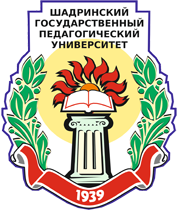Развитие языковой культуры будущих учителей начальных классов средствами курса «Речевой этикет и культура общения»
The development of language culture of future primary school teachers by means of the course "Speech etiquette and culture of communication»
Аннотация
Статья посвящена проблеме развития языковой культуры студентов в соответствии с требованиями профессионального стандарта педагога. С разных сторон анализируется основное понятие: «языковая культура», выделяются его структурные компоненты.
Автором представлены элементы диагностики по выявлению уровня развития языковой культуры будущих учителей начальных классов и представлены пути его повышения.
С целью оптимизации учебного процесса разработана и реализована программа курса «Речевой этикет и культура общения», где особое внимание уделяется содержанию учебного предмета, формам и методам обучения. Итогом обучения студентов, как показали результаты исследования, являются умения решать этикетные задачи, анализировать речевые ситуации, применять формулы речевого этикета на практике.
Автором доказывается, что целенаправленно организованная деятельность в процессе реализации курса (лекции-конференции, семинары с элементами тренинга, групповые формы работы, активные методы обучения) способствует развитию языковой культуры будущих учителей начальных классов.
Abstract: The article is devoted to the problem of development of language culture of students in accordance with the requirements of the professional standard of the teacher. The basic concept of "language culture" is analyzed from different sides; its structural components are stressed.
The author presents diagnostic elements to identify the level of development of language culture of future primary school teachers and presents ways to improve it.
In order to optimize the educational process, the program of the course "Speech etiquette and culture of communication" was developed and realized, where special attention is paid to the content of the subject, forms and methods of training. The result of training students, as shown by the results of the study, is the ability to solve etiquette problems, analyze speech situations, applies the formulas of speech etiquette in practice.
The author proves that purposefully organized activities in the course of the course (lectures, conferences, seminars with training elements, group forms of work, active teaching methods) contribute to the development of language culture of future primary school teachers.






